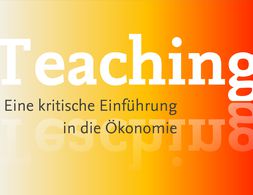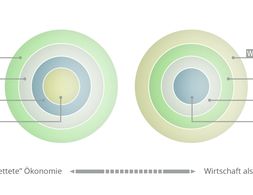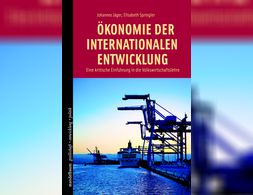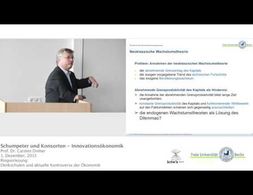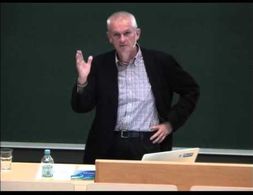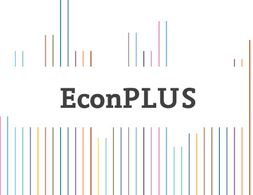389 Ergebnisse
This book discusses the relationship between pluralist economics and the case study method of teaching, advocating the complimentary use of both to advance economics education. Using a multi-paradigmatic philosophical frame of analysis, the book discusses the philosophical, methodological, and practical aspects of the case study method while drawing comparisons with those of the more commonly used lecture method.
Nature and communities in the global south is being overwhelmed at a shocking rate. In many places this is due to ventures such as large-scale open-pit mining, oil extraction in tropical areas, and the spread of monocultures. These and other such forms of natural resource appropriation are usually known as extractivisms.
Behavioural economics deals with observing behaviour and economic decision making behaviour.
The Philosophy of Economics Foundational Text provides a systematic and well-structured overview over the field of philosophy of economics.
The last 15 years have seen extensive research into ecosystem service valuation (ESV), spurred by the Millenium Ecosystem Assessment in 2005 (Baveye, Baveye & Gowdy, 2016). Ecosystem services are defined as “the benefits people obtain from ecosystems” (Millenium Ecosystem Assessment, p.V). For example, ecosystems provide the service of sequestering carbon which helps regulate the climate. Valuation means giving ecosystems or their services a monetary price, for example researchers have estimated that the carbon sequestration services of the Mediterranean Sea is between 100 and 1500 million euros per year. The idea of ESV was a response to the overuse of natural resources and degradation of ecosystems, allegedly due to their undervaluation and exclusion from the monetary economy. ESV can be used (1) for policy decision-making, for example allocating funding to a reforestation project (2) for setting payments to people who increase ecosystem services, for example a farmer increasing the organic carbon content of their soil, and (3) for determining fees for people who degrade ecosystem services, for example a company that causes deforestation.
It is perhaps fitting that the seriousness of the coronavirus threat hit most of the Western world around the Ides of March, the traditional day of reckoning of outstanding debts in Ancient Rome. After all, problems and imbalances have accumulated in the Western capitalist system over four decades, ostensibly since it took the neoliberal road out of the 1970s crisis and kept going along it, heedless of the crises and problems it led to.
In this essay the authors take a look at how welfare could be provided in a degrowth society.
Austrian economics focuses on the economic coordination of individuals in a market economy. Austrian economics emphasises individualism, subjectivism, laissez-faire politics, uncertainty and the role of the entrepreneur, amongst others.
The article pursues the two related questions of how economists pretend to know and why they want to know at all. It is argued that both the economic form of knowledge and the motivation of knowing have undergone a fundamental change during the course of the 20th century. The knowledge of important contemporary economic textbooks has little in common with an objective, decidedly scientifically motivated knowledge. Rather, their contents and forms follow a productive end, aiming at the subjectivity of their readers.
In economics the dominant framework for exploring the structure of market economies is provided by the neoclassical school of thought. This text aims to show how neoclassical theory is used to model market mechanisms, both in particular markets and in the market economy as a whole.
Der Fokus der Österreichischen Schule liegt auf der wirtschaftlichen Koordination von Angebots- und Nachfrageplänen zwischen Individuen. Konstitutiv sind u.a. der Subjektivismus, das Nutzenprinzip, Laissez-faire-Politik, fundamentale Unsicherheit sowie der Fokus auf den/die Unternehmer*in.
This text provides an easy to understand introduction to complexity economics for non-specialist audiences such as bachelor's students.
Steve Keen analyses how mainstream economics fails when confronted with the covid-19-pandemic. Mainstream economics has propagated the dismantling of the state and the globalization of production - both of which make the crisis now so devastating. More fundamentally, mainstream economics deals with market systems, when what is needed to limit the virus’s spread is a command system.
Die ökonomische Theorie hat mit Moral wenig oder gar nichts zu tun. In den gängigen Lehrbüchern der Mikroökonomie findet sich in den Stichwortverzeichnissen kein Eintrag zu Moral oder Ethik. Die Studierenden lernen über die Wirtschaft nachzudenken, aber sie lernen dabei nicht, systematisch über ethische Fragen zu reflektieren. Nach der neoklassischen Lehre, wie sie in den Lehrbüchern präsentiert wird, weist wirtschaftliches Handeln nicht grundsätzlich moralische Aspekte auf.
Along with addressing core conceptual issues in defining heterodox economics, we will cover in some detail five heterodox traditions in economics: Marxian Economics, Institutional Economics, Post-Keynesian Economics, Feminist Economics, and Ecologi-cal Economics. In the first class meeting, we discuss the structure and goals of the course, as well as the expectations and requirements from the students. In addition, we will discuss the concept of heterodoxy in economics, along with discussing the concepts and key issues in mainstream and neoclassical economics.
Die Economists4Future wollten eine Diskussion über notwendige Konsequenzen der Klimakrise für die Wirtschaftswissenschaften anstoßen – was bisher aber kaum gelungen ist. Das liegt vor allem daran, dass der neoklassische Mainstream weiterhin Diskursverweigerung betreibt. Ein Beitrag von Franziska M. Hoffart und Michael Roos.
Despite some diversification modern economics still attracts a great deal of criticism. This is largely due to highly unrealistic assumptions underpinning economic theory, explanatory failure, poor policy framing, and a dubious focus on prediction. Many argue that flaws continue to owe much of their shortcomings to neoclassical economics.
Post-Keynesians focus on the analysis of capitalist economies, perceived as highly productive, but unstable and conflictive systems. Economic activity is determined by effective demand, which is typically insufficient to generate full employment and full utilisation of capacity.
The notion that the demand and supply side are independent is a key feature of textbook undergraduate economics and of modern macroeconomic models. Economic output is thought to be constrained by the productive capabilities of the economy - the ‘supply-side' - through technology, demographics and capital investment. In the short run a boost in demand may increase GDP and employment due to frictions such as sticky wages, but over the long-term successive rises in demand without corresponding improvements on the supply side can only create inflation as the economy reaches capacity. In this post I will explore the alternative idea of demand-led growth, where an increase in demand can translate into long-run supply side gains. This theory is most commonly associated with post-Keynesian economics, though it has been increasingly recognised in the mainstream literature.
Welche Denkschulen bestimmen heute den volkswirtschaftlichen Diskurs und wie haben sie sich entwickelt? Von der Neoklassik über den Keynesianismus und Friedmans neoklassische Gegenrevolution bis hin zum "Neuen Konsens der Makroökonomik" stellt der Text die wichtigsten Strömungen vor.
Ziel dieser kritischen Einführung in die Volkswirtschaft ist es, auf knappem Raum unterschiedliche Sichtweisen auf wirtschaftliche Zusammenhänge darzulegen und damit die Basis für ein differenziertes Verständnis von Ökonomie und wirtschaftspolitischen Debatten zu liefern. In Zeiten einer integrierten Weltwirtschaft, rascher Veränderungen und internationaler Krisen liegt es nahe, Wirtschaft in ihrer internationalen Dimension in den Mittelpunkt zu stellen, anstatt wie gehabt meist nationale Ökonomien isoliert zu betrachten. Miteinander asymmetrisch verbundene Entwicklungen und Veränderungen in Nord und Süd, die auf globaler sowie zwischen nationaler und regionaler Ebene stattfinden, stellen somit einen zentralen Bezugspunkt dar. Daher der Titel des Buches: Ökonomie und internationale Entwicklung.
Die dominante Ökonomie fordert eine Bepreisung der Umwelt – spielt aber de facto beim Klimaschutz eine bremsende Rolle. Ihre Vorstellungen von „dem Markt“ sind zur direkten Bedrohung der Menschheit geworden.
A systematic comparison of the three major economic theories, showing how they differ and why these differences matter in shaping economic theory and practice.
Contending Economic Theories offers a unique comparative treatment of the three main theories in economics as it is taught today: neoclassical, Keynesian, and Marxian. Each is developed and discussed in its own chapter, yet also differentiated from and compared to the other two theories.
Participants should be able to distinguish the strictly non-cooperative (methodological individualist) foundations of traditional neoclassical economics as being couched in self-interested individuals, as well as having basic knowledge of an alternative set of theories based on the primacy cooperation and social norms and extending the breadth of economic analysis beyond exchange.
To what extent does gender affect people's patterns of labor force participation, educational preparation for work, occupations, hours of work (paid and unpaid) and earnings?
Ziel dieser kritischen Einführung in die Volkswirtschaft ist es auf knappem Raum unterschiedliche Sichtweisen auf wirtschaftliche Zusammenhänge darzulegen und damit die Basis für ein differenziertes Verständnis von Ökonomie und wirtschaftspolitischen Debatten zu liefern In Zeiten einer integrierten Weltwirtschaft rascher Veränderungen und internationaler Krisen liegt es nahe Wirtschaft in ihrer internationalen …
One hundred years ago the idea of 'the economy' didn't exist. Now, improving the economy has come to be seen as perhaps the most important task facing modern societies. Politics and policymaking are conducted in the language of economics and economic logic shapes how political issues are thought about and addressed.
In 18th century Europe figures such as Adam Smith, David Ricardo, Friedrich List and Jean Baptiste Colbert developed theories regarding international trade, which either embraced free trade seeing it as a positive sum game or recommended more cautious and strategic approaches to trade seeing it as a potential danger and a rivalry and often as a zero-sum game. What about today?
Hannes Vetter hat sich in Rahmen der Schreibwerkstatt "Varieties of Mainstream Economics?" mit der Evaluation der Bewertung von Umwelt in neoklassischen Makromodellen auseinandergesetzt.
Carsten Dreher starts with a historical perspective on the development of evolutionary economics by mentioning the difficulties of neoclassical economics to explain economic growth and by referring to the work of Joseph Schumpeter. Then some concepts such as business cycles, path dependencies are shortly explained. Dreher continues by introducing two different approaches in evolutionary economics, a micro centred approach that is associated with Nelson and Winter's work and a macro institutional and historical approach that has been pursued amongst others by Chris Freeman. Lastly the policy implications of treating economies as innovation systems are discussed and a summary of the differences of neoclassical and evolutionary economics is provided.
Walter Ötsch beschreibt wie die Ökonomik sich von der Moralwissenschaft unter Adam Smith zu einer Wissenschaft mit einem biologisch determinierten Menschenbild unter Malthus und Ricardo entwickelt. In diesem Prozess kommen naturwissenschaftliche Metaphern (Uhr-System, Waage-Gleichgewicht, Computer-Information) immer mehr zum Tragen. Anhand der Geschichte wird die Entwicklung der modernen Neoklassik gezeigt. Dann wird die marktliberale Interpretation der Neoklassik kritisiert. Zum Schluss wird noch auf das fehlende Narrativ der Ökonomik zur Finanzkrise eingegangen und auf den nicht stattgefundenen Bruch mit der Marktradikalität der Eliten.
Die Ergebnisse der Befragung belegen, dass die Lehrenden von einer Hierarchisierung der in der ökonomischen Analyse auftauchenden Begriffe ausgehen; die hauptsächlich für relevant gehaltenen Begriffe offenbaren hierbei eine spezielle konzeptionelle Sichtweise (Identifikation eines „mainstream“). Laut den Befragten ist der Mainstream durch Konzepte und Methoden gekennzeichnet, die sich im Gedankengerüst der neoklassischen Denkschule bewegen. Als relevantestes Merkmal des Mainstreams beschreiben die Befragten das Akteurskonzept des Homo oeconomicus sowie die Kategorien Rationalität, Gleichgewicht, Maximierung und Effizienz.
Wir nutzen Cookies. Klicke auf "Akzeptieren" um uns dabei zu helfen, Exploring Economics immer besser zu machen!





















